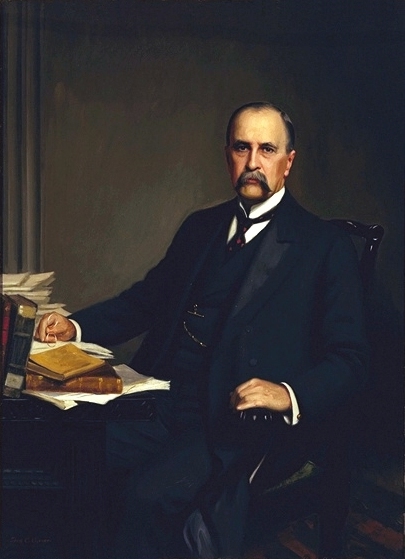“There are three classes of human beings: men, women and women physicians.”
As quoted in Women in Medicine (1968) by Carol Lopate and Josiah Macy, Jr., p. 178.
William Osler fue un médico canadiense.
Estudió en la Universidad McGill en Montreal, Quebec, donde obtuvo la licenciatura en medicina. Posteriormente fue profesor en la Universidad de Pensilvania y jefe de medicina clínica en dicha universidad. En 1889 fue el primer profesor de medicina de la Universidad Johns Hopkins. En 1905 se trasladó a Inglaterra, donde permaneció en Oxford hasta su muerte. Fue nombrado sir en 1911 por sus grandes contribuciones en el campo de la medicina.
Fue un gran colecccionista de libros de historia de la medicina. Después de su muerte su colección formó la parte principal de la Biblioteca de Historia de la Medicina de la Universidad McGill, que fue fundada en 1929.
Distintas enfermedades y síntomas llevan el nombre de Osler:
Signo de Osler es una falsa lectura de hipertensión arterial debida a arterioesclerosis.
Nódulos de Osler subcutáneos, dolorosos secundarios a endocarditis.
Enfermedad de Rendu-Osler-Weber , es un síndrome con múltiples malformaciones vasculares en la piel, en la mucosa nasal y oral, y también con formación de fístulas pulmonares.
Filaria de Osler: un parásito nematodo
síndrome de Osler dolores cólicos recurrentes con típica irradiación a espalda. Debido litiasis de la ampolla de Vater
Oslerus osleri Nemátodo que parasita la carina traqueal de los cánidos, produciendo bronquitis verminosa.
Enfermedad de Vaquez-Osler o Policitemia Vera Enfermedad mieloproliferativa maligna, crónica y Epo independientePor las necesidades detectadas para el ejército durante la Primera Guerra Mundial, solicitó a la fisióloga y patóloga Edith Claypole que buscara una inmunización a la tifoidea y aunque se vacunó, terminó muriendo por la exposición al patógeno.[1][2]
Wikipedia

“There are three classes of human beings: men, women and women physicians.”
As quoted in Women in Medicine (1968) by Carol Lopate and Josiah Macy, Jr., p. 178.
As quoted in Wisdom for the Soul (2006) by Larry Chang, p. 678.
On the Educational Value of the Medical Society (1903)
“When schemes are laid in advance, it is surprising how often the circumstances fit in with them.”
"Internal Medicine as a Vocation" Address to the New York Academy of Medicine (1897); later published in Aequanimitas, and Other Addresses (1905).
Vol. I, Ch. 24 : "The Fixed Period".
The Life of Sir William Osler (1925)
"After Twenty Five Years", an address at McGill College, Montreal (1899); later published in Aequanimitas : With other Addresses to Medical Students, Nurses and Practitioners of Medicine (1910), p. 210.
"Books and Men" in Boston Medical and Surgical Journal (1901).
"The Student Life" in The Medical News (30 September 1905).
“The desire to take medicine is perhaps the greatest feature which distinguishes man from animals.”
Vol. II, p. 342.
The Life of Sir William Osler (1925)
“A physician who treats himself has a fool for a patient.”
Fuente: Sir William Osler : Aphorisms (1961), Ch. 1.
Vol. I, Ch. 24 : "The Fixed Period'".
The Life of Sir William Osler (1925)
Address at Johns Hopkins Hospital (1897); later published in Aequanimitas, and Other Addresses (1905).
“Medicine is a science of uncertainty and an art of probability.”
As quoted in Computers in biomedical research (1965) by Ralph W. Stacy, p. 320.
The Treatment of Disease Can Lancet 1909;42:899-912.
Chauvinism in Medicine (1902)
Alcohol in St. Elizabeth Parish Magazine (1905). As quoted in Counsels and ideals from the writings of William Osler (1921, 2nd edition) http://babel.hathitrust.org/cgi/pt?id=hvd.hc1qm3;view=1up;seq=295
In reference to "On Chorea" (1872) by George Huntington on what is now known as Huntington's Disease, as quoted in "Huntington's Chorea" by Irwin A. Brody and Robert H. Wilkins in Archives of Neurology Vol. 17, No. 3 (1967). The acclaim Huntington received for this paper, his first, from Osler and others, he would later refer to as an "unsought, unlooked for honor."
“Soap and water and common sense are the best disinfectants.”
Fuente: Sir William Osler : Aphorisms (1961), p. 134.
The Faith that Heals (1910)